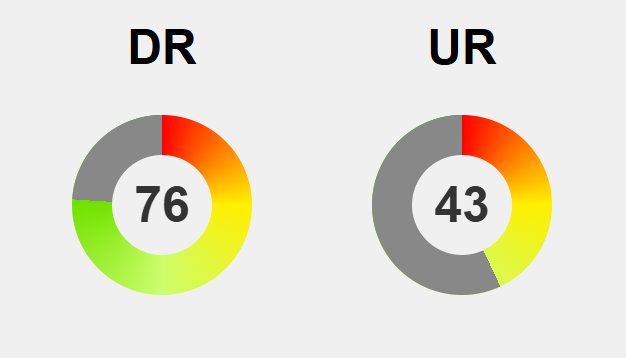The Magna Carta of 1215 is often celebrated as a cornerstone of modern justice and governance, but what lies beneath its historic words? Born out of medieval chaos—military failures, social unrest, and oppressive taxes—it was a pragmatic compromise aimed at stabilizing a fractured kingdom. Yet, even in its infancy, it challenged the divine right of kings by asserting that sovereignty must be bound by law, planting seeds for constitutional principles that endure today. Over centuries, its core ideas—limitation of power, due process, and individual rights—have evolved into universal notions that underpin democratic societies and international human rights. How did a document crafted through negotiation and necessity become a symbol of resistance against tyranny? Its principles continue to resonate, guiding contemporary debates on justice, accountability, and personal freedoms in an ever-changing world. The Magna Carta’s true power persists not just in its words, but in its enduring legacy of systemic fairness and human dignity.
Unveiling the Origins and Legacy of the Magna Carta
The Magna Carta of 1215 did not emerge in isolation but was the product of a highly volatile and complex political landscape in medieval England. King John’s reign was marred by military defeats, most notably the loss of Normandy and other vital territories in France, which severely diminished his legitimacy and authority. These setbacks engendered widespread dissatisfaction among the nobility and commoners alike, as the crown’s reliance on burdensome and often arbitrary taxation strained the social fabric. The feudal relationships that underpinned medieval governance began to fray under royal demands, and the legitimacy of royal power itself was increasingly questioned. This turbulent environment—characterized by military failures, economic hardship, and social unrest—set the stage for a rebellion driven by a collective desire to rein in royal authority and establish legal protections against arbitrary rule.
The immediate catalyst for the Magna Carta’s creation was the barons’ demand for safeguards that would limit the king’s unchecked power. Their grievances centered on abusive taxation, arbitrary justice, and the lack of legal recourse for those subjected to royal whims. They sought a formal recognition that their rights would be respected and that even the king’s prerogative would be constrained by law. Negotiations between King John and the rebellious barons culminated in the sealing of the document at Runnymede in June 1215, primarily driven by pragmatic political necessity rather than a philosophical commitment to liberty. It was a strategic compromise aimed at restoring stability during a period of crisis, crafted to address immediate disputes and prevent further chaos.
While the Magna Carta’s origins were pragmatic, its significance quickly transcended its initial context. Its clauses addressed specific feudal issues—inheritance, justice, and taxation—but they also subtly challenged the divine right of kings by asserting that even the sovereign was subject to the law. This was a revolutionary idea in an era when royal authority was believed to be derived directly from divine decree. The document planted the seeds for principles that would evolve into the foundation of constitutional governance, emphasizing that authority must operate within the bounds of law and customary rights rather than divine will alone. In doing so, it began to shift the perception of sovereignty from an absolute divine right to a conditional, law-bound authority.
The authority of the Magna Carta was inherently fragile from the outset. King John quickly sought its annulment, and many of its clauses were narrowly tailored to specific feudal disputes, leaving broader questions of individual rights unaddressed. Its language was often vague, allowing for reinterpretation or manipulation—an advantage the king exploited to revoke or ignore the charter when it suited his interests. The immediate aftermath was chaotic, culminating in the First Barons’ War, as rebel barons resisted royal attempts to bypass or revoke the agreement. Despite these setbacks, the symbolic power of the Magna Carta endured, and subsequent reaffirmations gradually established it as a cornerstone of legal resistance against absolute royal authority. Its legacy grew, inspiring future generations to see it not merely as a political document but as a symbol of legal accountability.
Over the centuries, the influence of the Magna Carta extended far beyond its medieval origins. Its core ideas—such as the rule of law, due process, and accountability—became central pillars of constitutional thought across Europe and in the English-speaking world. Thinkers like John Locke and later legal reformers drew upon these principles to challenge absolute monarchy and advocate for rights that limit governmental power. The Magna Carta served as a catalyst for the development of foundational documents like the English Bill of Rights, the American Declaration of Independence, and various international human rights treaties. Its enduring legacy lies not only in its specific clauses but in the broader ideas it helped propagate—ideas that continue to underpin modern notions of justice, liberty, and the balance of power, shaping the very fabric of contemporary governance.
Tracing the Historic Roots and Enduring Impact of the Magna Carta
The origins of the Magna Carta are deeply embedded in the volatile political landscape of early 13th-century England, a period marked by military setbacks, financial hardship, and social upheaval. King John’s reign was beset by disastrous military campaigns, most notably the loss of Normandy and other key territories in France, which not only diminished his territorial authority but also eroded his legitimacy among the nobility. These defeats heightened dissatisfaction among the barons and the broader social order, as the crown’s reliance on burdensome, often arbitrary taxes intensified grievances and strained feudal relationships. This convergence of military failure, economic strain, and social unrest created fertile ground for rebellion—driven by a collective desire to curb royal power and establish legal protections that would shield individuals from unchecked authority.
As grievances mounted, the barons pressed for tangible safeguards: limitations on the king’s ability to impose taxes without representation, protections against arbitrary justice, and recognition that even the monarch was subject to established laws. Their demands were rooted in the belief that legal protections should prevent royal overreach and that sovereignty should not be divine decree but rooted in law. Negotiations between King John and the rebellious barons, culminating in the sealing of the Magna Carta at Runnymede in June 1215, were driven more by pragmatic necessity than ideological commitment to liberty. It was a strategic response aimed at restoring stability amid chaos, crafted as a compromise to address immediate disputes and to prevent further escalation into open conflict.
Despite its pragmatic origins, the Magna Carta’s significance quickly expanded beyond its initial political purpose. Its clauses addressed specific feudal disputes—inheritance rights, justice, and taxation—but they also subtly challenged the divine right of kings by asserting that even the sovereign was bound by law. This assertion was groundbreaking in an age when royal authority was considered derived directly from divine authority. The document planted the seed for a broader understanding of sovereignty—that legitimate power must operate within the boundaries of law and established customs rather than divine fiat alone. This shift laid the groundwork for ideas that would eventually underpin constitutional principles, emphasizing that authority should be exercised within legal limits and subject to accountability.
From its inception, the authority of the Magna Carta was fragile. King John swiftly sought its annulment, and many clauses were narrowly tailored to specific feudal issues, leaving broader questions of individual rights largely unaddressed. Its language was often vague, providing opportunities for reinterpretation and manipulation—opportunities the king exploited to revoke or ignore the charter when it suited his interests. The immediate aftermath was chaos, culminating in the First Barons’ War, as rebel barons resisted royal efforts to bypass or revoke the agreement. Yet, even in these turbulent times, the symbolic power of the Magna Carta endured, inspiring future generations to see it as a foundational symbol of legal resistance against absolute power.
Over the following centuries, the influence of the Magna Carta extended far beyond its medieval roots. Its core ideas—rule of law, due process, and accountability—became central pillars of constitutional thought across Europe and the Anglophone world. Thinkers like John Locke and later legal reformers drew heavily on these principles to challenge the notion of absolute monarchy and to advocate for rights that limit governmental authority. The Magna Carta served as an inspiration for key documents such as the English Bill of Rights, the American Declaration of Independence, and the Universal Declaration of Human Rights. Its legacy persists in the enduring concepts of justice and liberty that underpin modern legal and political systems.
This evolution demonstrates how the Magna Carta’s ideas have been continually reinterpreted and expanded over time. It was never a static document but a living symbol whose meaning was reshaped through legal cases, political debates, and constitutional reforms. Its principles—limitation of power, due process, accountability, and individual rights—have been woven into the fabric of democratic governance. Each iteration reflects a deeper understanding of how power should be exercised and rights protected, transforming from medieval constraints into universal values that guide contemporary legal systems. The adaptability of these ideas accounts for their persistent relevance and importance.
The Magna Carta’s true power lies in its systemic principles—concepts that challenge unchecked authority and promote justice, fairness, and accountability. While born out of pragmatic negotiations, these ideas have come to define the moral foundation of modern democracy. Their influence is evident in the legal limits placed on government, the protections granted to individuals, and the ongoing efforts to hold those in power accountable. As societies evolve, these principles continue to serve as a moral compass, reminding us that authority must be exercised within law’s boundaries and that human dignity and rights are non-negotiable. The Magna Carta’s legacy endures precisely because its core ideas address universal human concerns that transcend specific historical contexts.
In sum, the influence of the Magna Carta has been neither immediate nor static. Its ideas have been continually reinterpreted, adapted, and integrated into legal and political systems around the world. This ongoing process reflects the document’s profound capacity to serve as a foundation for justice and accountability, rooted in a recognition that power must be checked and rights protected. Its core principles—limitation of authority, due process, and individual rights—remain vital in addressing contemporary challenges, from digital privacy to human rights. The story of the Magna Carta exemplifies how pragmatic political solutions can evolve into enduring universal ideals, shaping the pursuit of justice across generations and borders. Its enduring legacy underscores the importance of continuous dialogue, reform, and vigilance in safeguarding the principles that ensure fair and accountable governance for all.
Deciphering the Core Principles and Systemic Ideas of the Magna Carta
The Magna Carta’s enduring influence fundamentally rests on the core principles it introduced—principles that continue to underpin modern notions of justice, authority, and the rule of law. At its heart lies the revolutionary idea that authority must be exercised within a framework of established laws, challenging the long-held belief that kings or rulers possess absolute, unchecked power. This notion—that even the most powerful must operate according to laws—was groundbreaking in a medieval context where divine right and personal whims often dictated governance. By asserting that no one, not even the monarch, is above the law, the Magna Carta laid the groundwork for a legal culture rooted in accountability and limitation of arbitrary authority.
One of the most profound ideas embedded in the document is the principle of due process, which guarantees fair and consistent treatment under the law. Medieval justice was frequently arbitrary, with rulers making decisions based on personal vendettas or favoritism. The Magna Carta’s emphasis on due process marks a departure from this, emphasizing that justice must follow established procedures, be predictable, and protect individuals from capricious acts. This concept not only introduced protections against wrongful punishment but also fostered the development of judicial fairness that remains central to contemporary legal systems. It set a precedent that individual rights should be safeguarded by procedural rules, a notion that continues to be a cornerstone of modern justice.
The idea of limited monarchy emerges as another cornerstone of the Magna Carta’s systemic principles. By explicitly restricting royal prerogatives and emphasizing that even the king must abide by the law, the document challenged the divine right of kings—a doctrine that had long justified absolute rule. Instead, it suggested that legitimate authority derives from adherence to laws and customs rather than divine decree alone. This shift gradually evolved into the recognition that political power must be distributed and checked through legal mechanisms. Over time, this idea became central to constitutional governance, underpinning the development of parliamentary systems and the concept that government must be accountable to the law and, ultimately, to the people.
Sovereignty, as it was understood before the Magna Carta, was often associated with divine right, granting kings an almost unlimited authority. The document subtly begins to challenge this notion by implying that sovereignty is conditional and subject to the rule of law. It hinted that power is granted and limited by legal standards, rather than being inherent or divinely bestowed. This conceptual shift was instrumental in moving away from an absolutist view of monarchy towards a system where rulers are bound by legal constraints. It promoted the idea that sovereignty is shared and conditional, laying the intellectual foundations for later constitutional principles that emphasize that authority is not absolute but exercised within a framework of laws.
Protection of individual rights also features prominently among the Magna Carta’s systemic ideas. While originally conceived within a feudal context, its recognition that individuals possess inherent rights—particularly concerning property, justice, and personal liberty—set the stage for broader human rights concepts. The document’s emphasis on safeguarding personal liberties against the abuse of power planted seeds that would grow into modern notions of human dignity and legal protections. Over centuries, these ideas expanded beyond feudal disputes, influencing the development of rights-based legal systems and international human rights frameworks. The Magna Carta thus contributed to a shift from a focus solely on state authority to an emphasis on individual rights as fundamental to justice.
The Magna Carta’s systemic ideas are not static; they have been continuously reinterpreted and expanded over time. Its principles—limitation of power, due process, accountability, and individual rights—have been woven into the fabric of constitutional democracies. The evolving legal landscape shows how these ideas have been adapted to new contexts, from the English Bill of Rights to the US Constitution and beyond. Each iteration reflects a deeper understanding of how power should be exercised and how rights should be protected. This adaptability demonstrates that the Magna Carta’s core concepts are living principles, capable of guiding legal and political development well beyond their medieval origins. Their resilience lies in their capacity to address universal human concerns—justice, fairness, and dignity—that remain relevant across eras and societies.
This ongoing relevance underscores the importance of understanding the foundational ideas that continue to shape our legal systems today. For readers interested in exploring these principles further, the article on Magna Carta Principles provides a comprehensive overview of its systemic ideas and their modern implications.
Modern Reflections: How Magna Carta Principles Shape Today’s Justice and Governance
The enduring principles articulated in the Magna Carta continue to serve as the bedrock of modern legal and societal frameworks, often operating in ways that are both subtle and profound. Its assertion that the rule of law applies equally to all—regardless of social rank or political influence—has become a cornerstone of contemporary judicial systems worldwide. Today’s laws are designed to ensure that governments and authorities act within defined legal boundaries, safeguarding individual freedoms from arbitrary and unchecked power. Judicial review, constitutional protections, and the independence of courts all echo the Magna Carta’s legacy of accountability, providing mechanisms that uphold fairness and prevent tyranny. These legal structures are not mere formalities; they are vital instruments that maintain societal trust and protect the dignity of every person under the law.
The concept of due process, central to the Magna Carta’s vision, has been woven into the fabric of modern justice. It guarantees that individuals are entitled to fair treatment, a chance to be heard, and protections against wrongful punishment or detention. These protections manifest today in rights such as the right to a fair trial, legal representation, and protection from unlawful searches or seizures. By establishing procedural fairness as a fundamental principle, the Magna Carta laid the groundwork for justice systems that prioritize transparency and consistency. This doctrine acts as a safeguard against abuse, ensuring that authority is exercised responsibly and that individual rights are not sacrificed in the pursuit of state interests. Its influence is evident in the legal protections that millions rely on daily, affirming that justice must be rooted in fairness and respect.
Beyond legal doctrines, the Magna Carta’s principles have profoundly shaped the structure and philosophy of government itself. Its emphasis on limiting monarchical or executive power laid the foundation for constitutional governance—where authority is distributed, checked, and held accountable through legal mechanisms. Modern democratic systems, whether parliamentary or presidential, owe much to this legacy. The idea that sovereignty is conditional and bound by law has evolved into the fundamental understanding that political power must operate transparently, with clear oversight and accountability. Institutions such as legislatures, judiciaries, and independent watchdog agencies embody this principle, ensuring no branch or individual wields unchecked authority. The Magna Carta’s influence in this realm underscores its role as a catalyst for the development of systems designed to prevent abuse and promote responsible governance.
The principles rooted in the Magna Carta have also fueled the expansion and protection of human rights across the globe. Originally focused on feudal disputes and royal authority, these ideas have grown into universal values that underpin international law and human rights treaties. The recognition that individuals possess inherent rights—such as property rights, freedoms of speech and assembly, and protections against discrimination—derives in part from the foundational concepts first articulated in 1215. Over centuries, these principles have inspired movements and legal reforms aimed at ensuring dignity, equality, and justice for all. From the abolition of slavery to the fight against racial and gender discrimination, the Magna Carta’s legacy persists as a moral compass that champions human dignity against oppression and abuse of power. Its influence reminds us that safeguarding individual rights remains a universal and ongoing endeavor.
In practice, the impact of the Magna Carta’s principles manifests daily in the functioning of legal systems, political institutions, and civil society. Landmark cases continue to invoke its ideas, reinforcing the importance of legality and accountability. For instance, judicial decisions that challenge unlawful government actions or protect individual liberties echo the Magna Carta’s core message. Similarly, constitutional debates and reforms often rest on its foundational concepts—limitation of power, due process, and rights—demonstrating their continued relevance. Citizens and activists regularly draw upon this legacy to advocate for reforms, transparency, and justice. The Magna Carta’s enduring influence is also visible in efforts to combat corruption, defend human rights, and promote democratic accountability, proving that its principles are as vital today as they were eight centuries ago.
Looking forward, the core ideals of the Magna Carta remain vital as societies confront new challenges in an increasingly complex world. Issues such as digital privacy, surveillance, and artificial intelligence raise questions about sovereignty, individual rights, and the limits of authority—questions that echo medieval concerns about justice and power. The principles of accountability, fairness, and the rule of law serve as guiding lights, helping shape policies and legal standards that uphold human dignity amid rapid technological change. Moreover, the Magna Carta’s influence extends beyond national borders, inspiring global efforts to establish justice and protect fundamental rights. As new social, political, and technological landscapes emerge, the challenge will be to reinterpret and adapt these enduring principles, ensuring they remain relevant and effective. The legacy of the Magna Carta encourages a continual dialogue—between tradition and innovation, authority and individual rights—reminding us that justice is a dynamic, ongoing pursuit rooted in shared human values.
Looking Ahead: The Future of Magna Carta’s Principles in a Changing World
The story of the Magna Carta does not conclude with its sealing in 1215; rather, its true influence lies in the ongoing evolution of the ideas it introduced and the enduring principles it has inspired. Over the centuries, this modest document transformed from a pragmatic settlement into a powerful symbol of resistance against unchecked authority and a cornerstone of modern justice and governance. Its legacy persists because the core concepts—limitation of power, accountability, and individual rights—remain vital to the functioning of democratic societies today. These principles have shown remarkable resilience, adapting across different eras, political systems, and cultural contexts, continually reaffirming their relevance in the pursuit of fairness and justice.
Looking ahead, the principles embedded within the Magna Carta will likely continue to shape debates about the balance between authority and individual freedoms, even amid rapid technological change. Issues such as digital surveillance, data privacy, and artificial intelligence challenge traditional notions of sovereignty and personal liberty—questions that echo medieval concerns about justice and power. The rule of law, fairness, and accountability serve as guiding beacons in navigating these complexities, reminding us that the fundamental human desire for justice does not waver with technological progress. As society advances, these ideas will need to be rearticulated and reinforced to ensure that human dignity remains central, even in the face of innovation that could threaten individual rights.
Internationally, the Magna Carta’s influence extends beyond national borders, fueling the development of global human rights frameworks and transnational legal standards. Its core ideas—limiting abuse of power and protecting individual dignity—resonate deeply in treaties and declarations that seek to uphold universal rights. The movement toward global justice and accountability draws heavily on these enduring principles, emphasizing that the fight for human rights is a collective effort that transcends borders. As interconnectedness deepens, the Magna Carta’s legacy acts as a moral compass, inspiring efforts to build more equitable, transparent institutions worldwide, grounded in shared values of justice and dignity.
However, the future also depends on how effectively societies interpret and apply these principles in evolving contexts. Superficial reinterpretations or political co-optation pose risks, especially when foundational ideals are invoked to serve particular agendas rather than genuine justice. Vigilance and historical awareness are crucial; recognizing that many of the Magna Carta’s ideas were born out of pragmatic negotiations rather than lofty ideals can prevent their misuse. This understanding fosters a pragmatic approach to reform—one that respects the document’s origins while adapting its principles to contemporary challenges with humility and purpose. It encourages ongoing dialogue between tradition and innovation, ensuring that these enduring values do not become mere rhetoric but remain active forces for justice.
The development of governance models will benefit from this historical perspective, emphasizing that justice is a continuous process rather than a fixed endpoint. Societies must balance respect for tradition with the need for progress, ensuring that core values like fairness, accountability, and human dignity are preserved amid social and technological transformations. The Magna Carta’s history illustrates that principles of justice evolve through conflict, negotiation, and reinterpretation—each iteration deepening their relevance. This dynamic process demands active engagement from citizens, legal professionals, and policymakers, all committed to safeguarding the foundational ideals that underpin free and fair societies.
Activism and civic participation stand as vital vehicles for translating the Magna Carta’s ideals into tangible change. Citizens, advocates, and leaders can draw inspiration from its emphasis on accountability and justice, pushing for reforms that strengthen democratic institutions and protect individual rights. The document’s story reminds us that justice is a collective endeavor, requiring vigilance, courage, and a shared commitment to principles that transcend specific regimes or eras. As societal challenges grow more complex, the ongoing effort to uphold and adapt these core ideas ensures that the pursuit of justice remains a living, breathing enterprise—one that depends on active engagement and unwavering resolve.
The enduring power of the Magna Carta lies in its capacity to serve as a moral and legal touchstone, constantly reminding us of the human aspiration for dignity, fairness, and accountability. Its influence continues to inspire legal systems, political debates, and social movements worldwide. Its principles are embedded in the very fabric of democratic governance, shaping laws and institutions that strive to prevent tyranny and uphold individual freedoms. As long as societies remain committed to these ideals, the Magna Carta’s legacy will persist as a guiding light—an enduring symbol of humanity’s collective pursuit of justice.
In the face of emerging global challenges, the Magna Carta’s core principles will remain vital. From safeguarding personal privacy in the digital age to ensuring transparency in government actions, these ideas will serve as foundational references for future legal and ethical standards. The ongoing reinterpretation and application of its core values will be essential in addressing issues that the medieval framers could scarcely imagine but that echo their concerns about power, justice, and human dignity. By anchoring new debates in the enduring wisdom of the Magna Carta, societies can navigate the complexities of modern governance with a sense of continuity and purpose, ensuring that the pursuit of justice remains dynamic, inclusive, and rooted in shared human rights.







